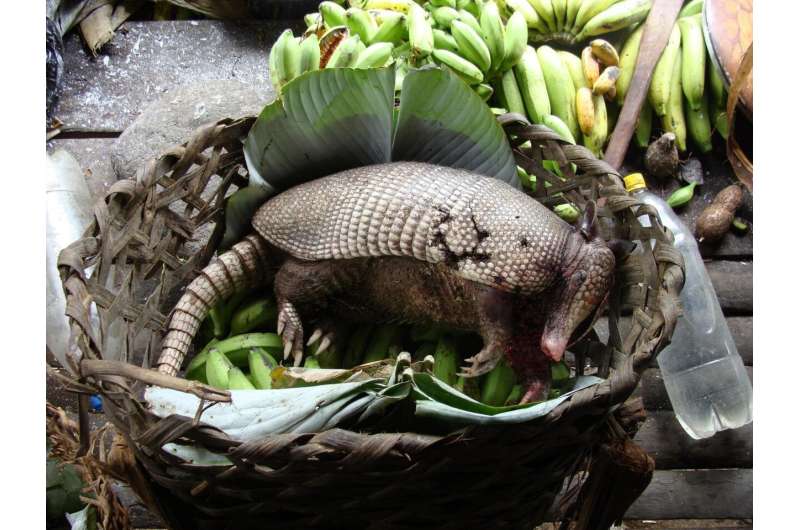Changes in subsistence hunting threaten local food security

Scientists with the Universidad San Francisco de Quito and WCS Ecuador Program publishing in the journal BioTropica say that subsistence hunting in Neotropical rain forests—the mainstay of local people as a source of protein and a direct connection to these ecosystems—is in jeopardy from a variety of factors.
The authors say that the relatively small groups that hunted in large and mostly undisturbed forests, using traditional weapons, have been replaced by a growing population using fragmented habitats and modern hunting methods. Meanwhile, increased exploitation from mining, oil exploitation and tourism has fueled a rapidly growing commercial trade in wildlife.
Thus, the authors say that subsistence hunting is less likely to be sustainable, threatening the food security of local people and the persistence of species with critical roles in the functioning of Neotropical rain forests.
Said co-author Galo Zapata-Ríos, Science Director of WCS's Ecuador Program: "No longer can subsistence hunting be seen or managed as a sustainable activity carried out by small, isolated human groups occupying large tracts of natural habitat and using traditional hunting methods. Any approach to the problem must take into account the fundamentally different context in which subsistence hunting occurs in the present day."
Managing subsistence hunting in this changing context will require a more efficient combination of tools. These might include banning the hunting of large and sensitive species, shifting toward smaller species with high reproductive rates, coupled with strengthening protected areas—some of which are already under threat of being downgraded, downsized, or degazetted.
One approach to addressing this might be participatory zoning, to designate residential areas and areas where farming, gathering non-timber forest products, forestry and hunting can be practiced sustainably, while allowing for the designation of no-hunting areas that serve as source areas for hunted species. Other tools include diversification of income sources (e.g., ecotourism), production of domestic animals for food, mini-livestock breeding, and payment for ecosystem services alternatives to reduce the role of wildlife protein on local people's subsistence.
More information: Esteban Suarez et al. Managing subsistence hunting in the changing landscape of Neotropical rain forests, Biotropica (2019). DOI: 10.1111/btp.12662
Journal information: Biotropica
Provided by Wildlife Conservation Society


















